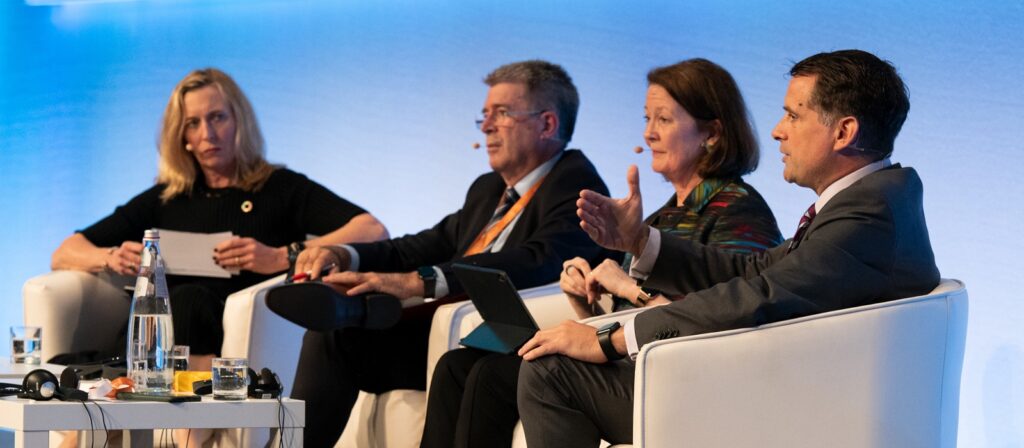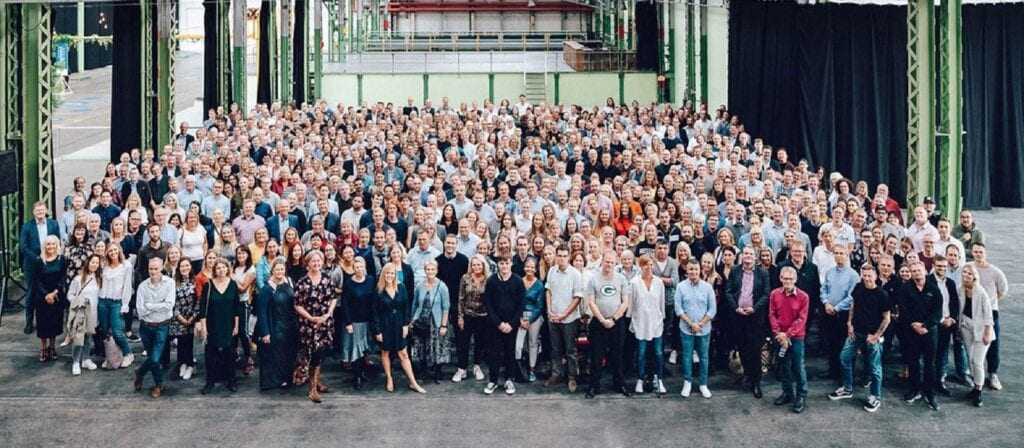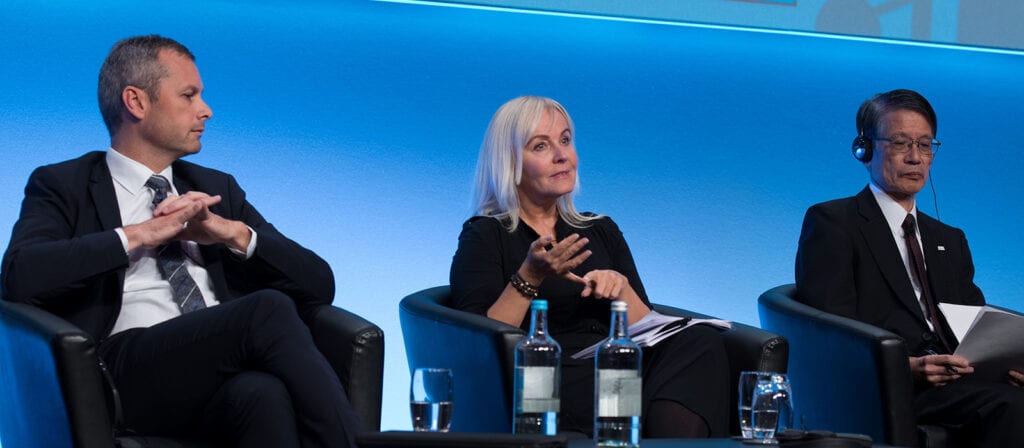At Thrivent (USA) it is about understanding what its customers want and need. Thrivent is a fraternal insurer, offering life, health and annuity products to more than two million individuals in the USA. However, Thrivent is undergoing a holistic shift from being a product-centric life insurance company to a customer-centric diversified financial services company, in order to serve the important financial needs of the consumer of today and tomorrow. Thrivent’s fraternal model means that it has always had a close relationship with its members, but the company still wanted a transformation from thinking transactionally to making every strategic decision with the customer in mind.
This change management also involved a cultural transformation, such as bringing in new talent and upskilling the workforce to embrace new cutting-edge technologies and new ways of working. Human-centred design and agile methodologies have helped Thrivent develop new products and services which will meet customer needs in the future. Thrivent also developed a new purpose, promise, principles and values, and sought to modernise its brand to help customers engaged with the company through digital (first) channels. They believe its new purpose – “humanity thrives when people make the most of all they’ve been given” – and its promise to customers, will appeal to the next generation and provide Thrivent with an advantage as a company which people admire and want to do business with.
LB Group (Denmark) has also recently reimaged its purpose with a new strategy: together with its members, they “will make insurance redundant”. This represents a significant change of business model and transformation on the basis that in 25 years’ time, LB Group will not be an insurance company but a service provider and will shift from paying claims (protection) to preventing claims. Currently, LB provides non-life insurance to 400,000 members that are professionals, such as teachers, nursing staff and doctors. In 2019, they also announced a strategic cooperation with largest Danish customer-owned pension company to offer non-life products to their customers (and vice-versa).
In the future, LB envisages that there will be no insurance claims as we know them today. The notion of manufacturing and selling an insurance product, and the insurer owning the value chain, will be gone, and will be replaced by collaboration and partnerships in a new ecosystem. New risks will emerge, and LB’s role will be to work with members/customers in order to secure their everyday lives, creating value with, and for, its members as they will be partners in the ecosystem. Data and technology are key elements (LB is already using IoT technology in their smart home solutions), but trust will be the differentiator for mutual insurers. LB’s advantage will be the immense trust that members have placed in the company, and their responsibility is to be a trusted partner for their members.
As a membership-based mutual, the 35,000 members of MAS (New Zealand) are central to the organisation, and customer-centricity is part of the DNA of MAS. Formed in 1921 by a group of doctors to provide personal lines non-life and life insurance, it has expanded to serve the wider professional market through a network of trusted advisors.
In preparation for the future, MAS has been thinking strategically about how it will integrate digital technology into supporting its business proposition. Its staff are central to their strategy and its personal service acts as a differentiator. But the company recognises the need to offer its customers different options and channels to improve interactions with them. Technology will be critically important to its business, helping to drive necessary efficiency and productivity gains.
The question for MAS is where to implement technological solutions into the value chain, in order to create the best value for the organisation and provide the best value to customers. Customer trust will remain a strategic advantage for MAS, and one it can improve by using data insights to gain a better understanding of its customers. MAS has also recently looked at its role in terms of its positive impact on the community and launched the MAS Foundation to provide support for health, education and research. As we move into a post-capitalist world, supporting its customers, as well as its staff and communities, is something MAS can leverage in the future.
Session panellists:
- Teresa Rasmussen, President and CEO, Thrivent (USA)
- Anne Mette Toftegaard, CEO, LB Group (Denmark)
- Martin Stokes, CEO, MAS (New Zealand)
- Andrea Keenan, Senior Managing Director – Strategy & Communications, AM Best (USA) moderator





